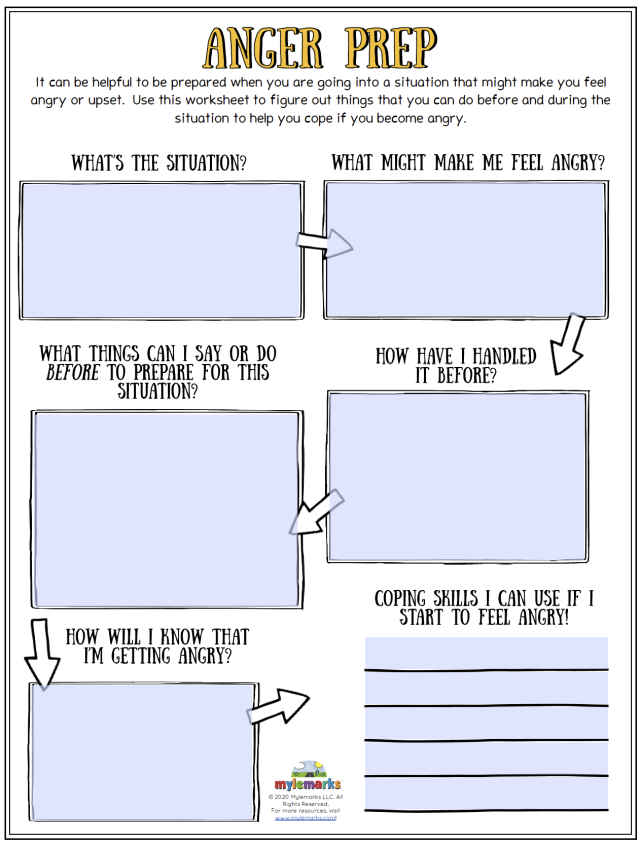Anger is a normal emotion that everyone experiences from time to time. However, when anger is not managed properly, it can lead to destructive behavior and negatively impact relationships. Anger therapy worksheets are a helpful tool in addressing and managing anger issues.
These worksheets are designed to help individuals identify the triggers of their anger, understand their reactions, and develop healthy coping mechanisms. They can be used in individual therapy sessions, group therapy, or even on your own at home. By completing these worksheets, individuals can gain insight into their anger patterns and learn how to effectively manage their emotions.
One of the key components of anger therapy worksheets is identifying triggers. This involves recognizing the situations, people, or events that lead to feelings of anger. By pinpointing these triggers, individuals can learn to anticipate and prepare for them, reducing the likelihood of an angry outburst. This awareness is crucial in developing a proactive approach to managing anger.
Another important aspect of these worksheets is understanding the physical and emotional reactions that accompany anger. By recognizing the signs of anger, such as increased heart rate, clenched fists, or racing thoughts, individuals can learn to pause and take a step back before reacting impulsively. This self-awareness allows for greater control over one’s emotions and behavior.
In addition to identifying triggers and reactions, anger therapy worksheets also help individuals explore the underlying causes of their anger. This may involve examining past experiences, beliefs, or thought patterns that contribute to feelings of anger. By delving into these deeper issues, individuals can work towards resolving unresolved conflicts and developing healthier ways of expressing and processing their emotions.
Overall, anger therapy worksheets are a valuable tool in helping individuals manage their anger in a constructive and healthy manner. By using these worksheets to identify triggers, understand reactions, and explore underlying causes, individuals can gain insight into their anger patterns and develop effective coping strategies. With continued practice and commitment, individuals can learn to express their anger in a productive way, leading to improved relationships and overall well-being.
